Cubicall Office Privacy Booths
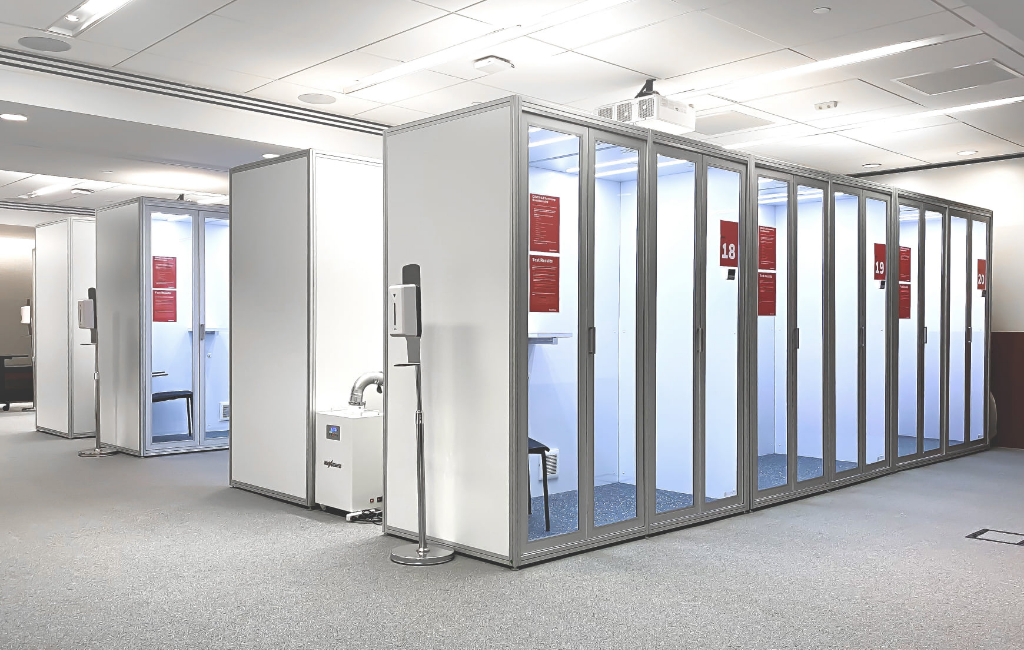

DEAL
EPISODE SUMMARY
🕓 Air Date: May 5, 2019
Asking For:
$350,000 for 10%
Investor:
Barbara Corcoran
Deal:
$350,000 for 25%
PRODUCT SUMMARY
Cubicall is a modern phone booth designed to address the privacy shortcomings in open-plan offices, focusing on audio, visual, territorial, and information privacy needs.
WATCH HERE
IN A RUSH?
Click these to jump to the section you want to read.
Background Story
Cubicall, hailing from the vibrant city of Los Angeles, California, finds its roots in the dynamic collaboration between founders Anthony Pucci and Nick Pucci. The inception of Cubicall was spurred by the duo’s firsthand experience in running a family marketing agency within the confines of an open-plan office space. Being of Italian descent, the Puccis infused their conversations with passionate exchanges, creating a lively atmosphere that, unfortunately, posed challenges during crucial business calls and meetings.
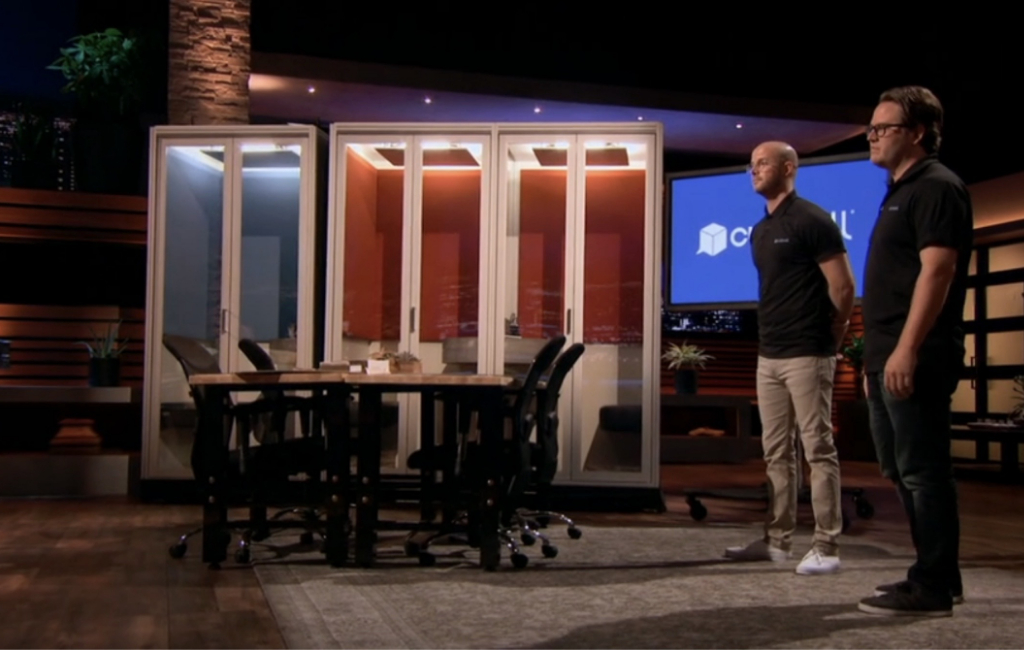
The breaking point came when important discussions either had to be conducted in stairwells or required the founders to relocate to quieter environments outside the office. Frustrated by the lack of suitable alternatives, Anthony and Nick recognized the need for a solution that could provide much-needed privacy without sacrificing space efficiency. Inspiration struck, and the idea for Cubicall was born. They conceptualized and designed a modern phone booth that specifically addressed the privacy shortcomings of contemporary open-plan offices. The result was a sleek and customizable booth that focused on four crucial privacy pillars: audio, visual, territorial, and information.
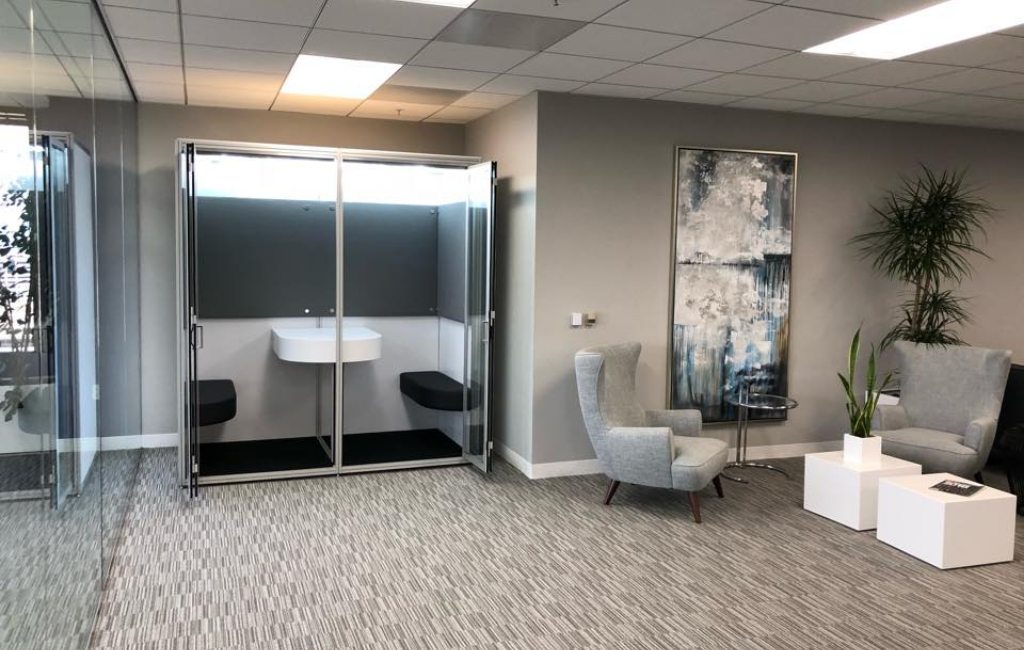
This innovation not only transformed the work environment for the Puccis but also presented a viable solution for countless other businesses facing similar challenges in the evolving landscape of modern offices.As the Cubicall booths garnered attention and praise within their own office, client inquiries about acquiring these privacy-enhancing structures paved the way for the founding duo to turn their solution into a business venture. The success story of Cubicall is not only a testament to the Puccis’ entrepreneurial spirit but also showcases how personal challenges can inspire innovative solutions that resonate with a broader market.
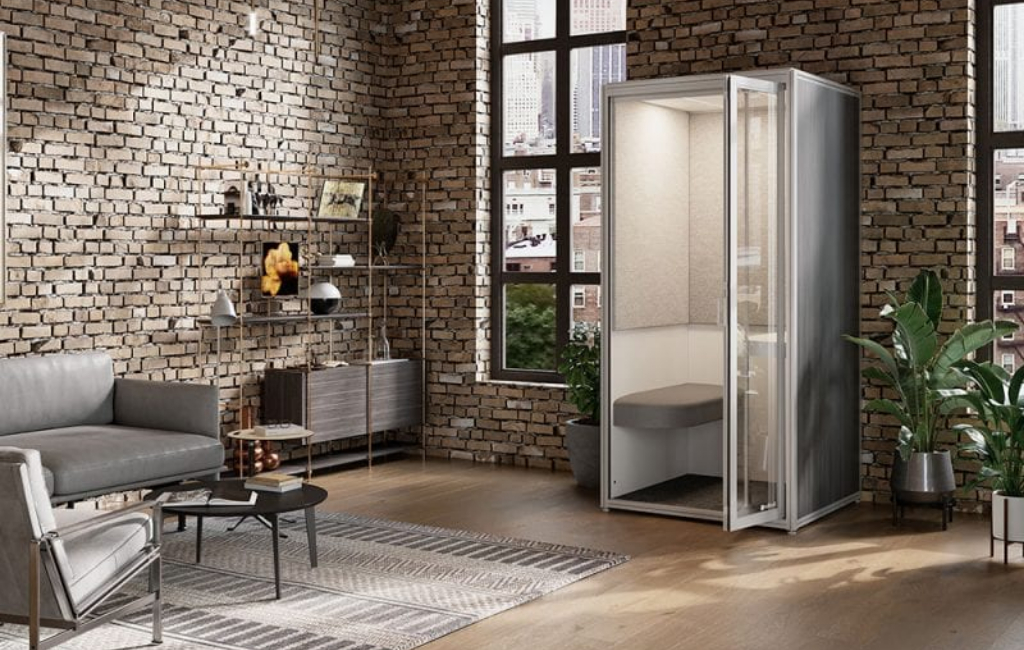
The Product
Cubicall, a revolutionary solution for modern office spaces, introduces a range of phone booths meticulously designed to address the privacy and productivity challenges posed by open-plan work environments. The Cubicall booth stands out for its efficiency in delivering on four fundamental privacy pillars: audio, visual, territorial, and information. These meticulously crafted booths feature bifolding doors that enhance space utilization, making them suitable for offices where every inch counts.
Fully customizable, Cubicall booths come in a variety of colors, materials, and even offer options for custom graphics, ensuring they seamlessly integrate into diverse office aesthetics. The booths are equipped with air-circulation fans, regular outlets, and USB chargers to enhance user convenience. Simple to assemble and shipped flat, Cubicall booths are designed for easy installation and immediate use.
Priced at $6,995 for the Cubicall 2 model and $11,995 for the larger version, the booths cater to businesses looking to enhance their employees’ working conditions. The product’s benefits extend beyond providing privacy; it fosters a conducive environment for focused work, essential meetings, and confidential conversations, ultimately boosting overall employee morale and satisfaction.
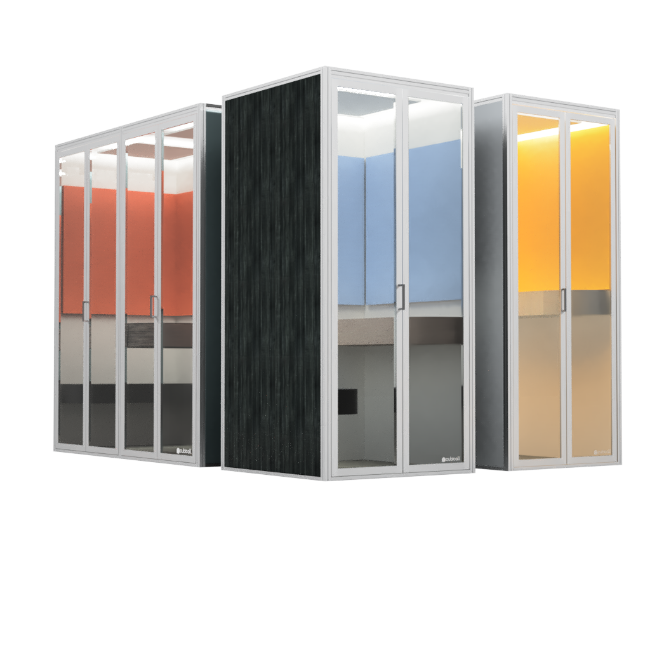
How It Went
The company’s position before Shark Tank
Cubicall has demonstrated a robust performance in the market since its inception in Los Angeles, California. Over the last 12 months, the company has successfully sold approximately 70 booths, generating a commendable $495,000 in revenue. This showcases a promising start for the venture, particularly given the niche focus on providing innovative privacy solutions for modern office spaces. As for partnerships, Cubicall operates in the competitive market with around four competitors. The company’s unique selling points, such as the innovative bifolding door design, set it apart in this space.

Cubicall currently sells its booths strictly online, adopting a direct-to-end-user sales strategy. This approach has proven successful in the initial stages, with plans to expand sales channels in the future. The company’s direct-to-customer model, however, raises concerns about thin profit margins, prompting discussions during the Shark Tank pitch about potential adjustments with additional investment. The founders, Anthony and Nick Pucci, revealed that the company started last August, indicating that Cubicall is a relatively young venture. With an ambitious vision for the second year, aiming to reach $2.5 million in sales and sell about 300 booths, the company seeks additional investment to achieve this milestone.
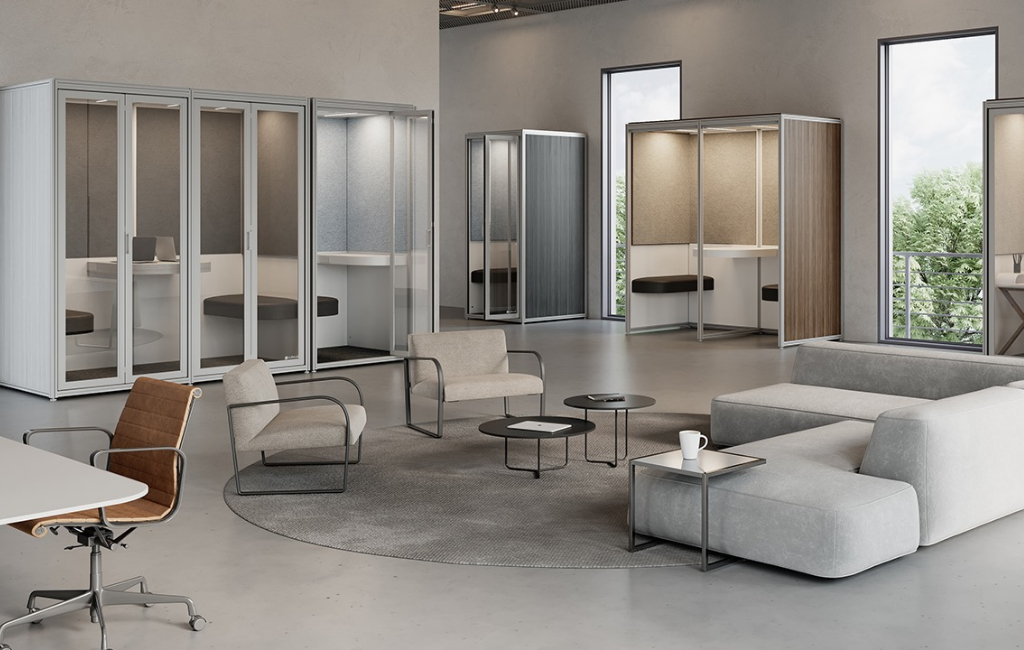
The founders expressed confidence in widening profit margins by 20-30% with increased funding, emphasizing the potential for growth and scalability. The available capital and financial health of the company would depend on the success of the deal with Barbara Corcoran and the agreed-upon terms. The company’s structure and key roles within Cubicall remain unspecified in the provided information. However, it’s common for startups like Cubicall to have a lean organizational structure in the early stages, with the founders handling multiple roles. As the company grows, it may develop a more defined organizational hierarchy.
The Negotiations:
In the high-stakes negotiation on Shark Tank, Cubicall founders Anthony and Nick Pucci sought a $350,000 investment for a 10% equity stake in their innovative phone booth company. Barbara Corcoran, recognizing the potential of the product and its relevance in the evolving landscape of modern offices, swiftly expressed interest in a deal. However, as negotiations unfolded, the founders deemed Kevin O’Leary’s offer, which included a complex royalty structure, too intricate for their liking.

Barbara Corcoran initially offered $350,000 for a 25% equity stake, a figure she believed would reflect the effort she would contribute to the business. The Pucci brothers, however, countered with a proposal of $350,000 for a 15% equity share, indicating their desire to retain a larger portion of their company while still benefiting from Barbara’s expertise and connections. Despite their efforts to secure a more favorable equity split, Barbara held her ground, emphasizing the value she intended to bring to Cubicall through her extensive network and experience. The founders, recognizing the potential benefits of aligning with Barbara Corcoran accepted her offer.
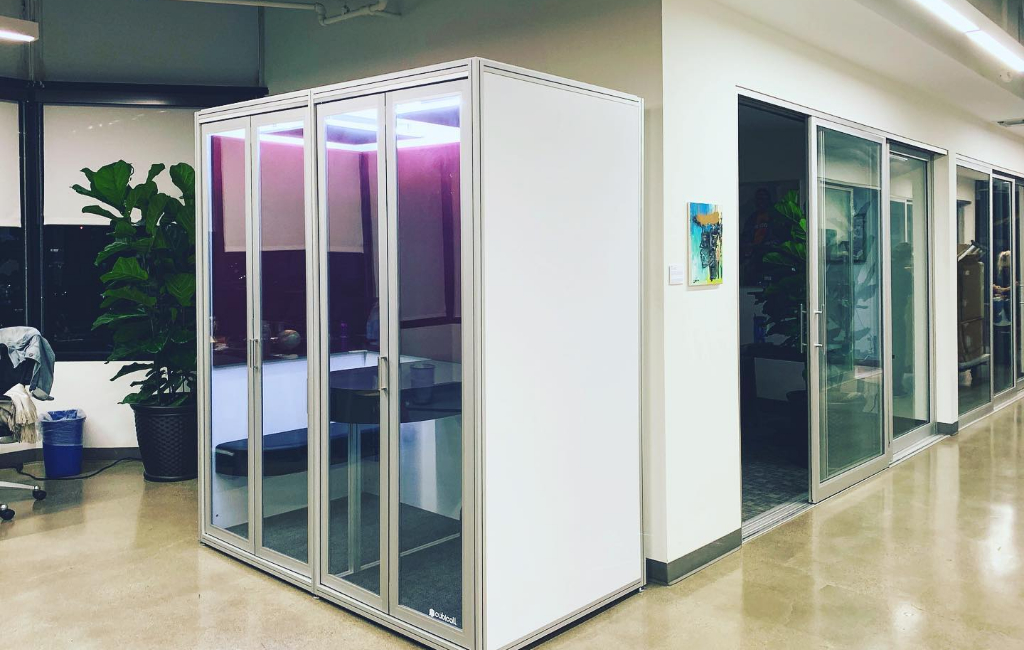
This negotiation secured Barbara as a strategic partner, providing Cubicall with both the investment and mentorship needed to navigate the competitive market and achieve their ambitious growth goals. Ultimately, the negotiation showcased the delicate balance between equity considerations and the strategic value a Shark like Barbara Corcoran could bring to Cubicall. The deal struck aligns the interests of both parties, setting the stage for the continued success and expansion of Cubicall in the evolving landscape of modern







